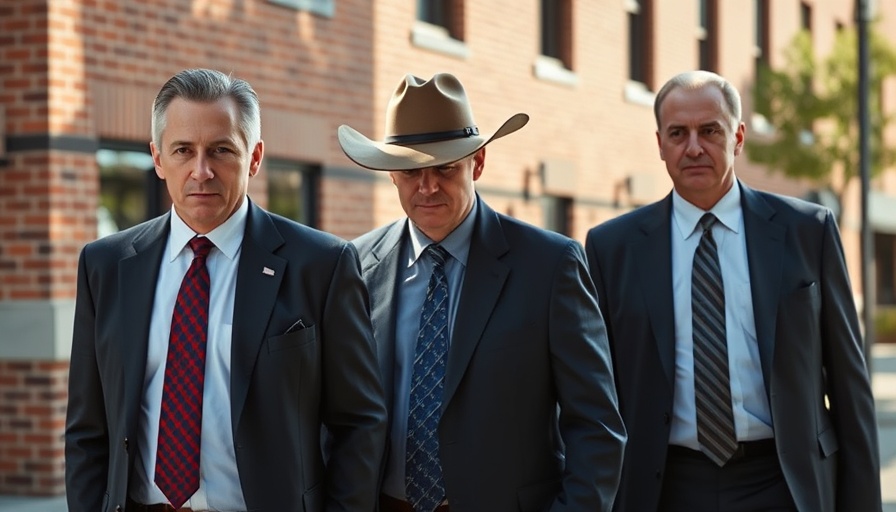
A Resurgence of Measles: The Stark Reality in Texas
The recent outbreak of measles in Texas has drawn significant attention, especially following the tragic deaths of two young children in the region. Measles, once considered a disease of the past due to widespread vaccination efforts, is now resurging in communities where vaccination rates have fallen. As of now, nearly 500 cases have been reported in Texas, with additional cases in nearby New Mexico, Oklahoma, Kansas, and even Mexico. This alarming spike raises important questions about public health and the impact of vaccination hesitancy.
The Impact of Vaccine Hesitancy on Community Health
With the resurgence of measles and the unfortunate fatalities that have ensued, it’s imperative to consider the dangers that vaccine hesitancy poses to community wellness. RFK Jr., the current Health and Human Services Secretary, though known for his anti-vaccine stance, acknowledged in a recent statement that vaccination is crucial in preventing the spread of measles. The Measles, Mumps, and Rubella (MMR) vaccine has demonstrated its efficacy for over 60 years, achieving a 97% effectiveness rate after two doses, yet misinformation continues to fuel fear among parents.
Historical Context: How Did We Get Here?
The historical context of measles eradication in the U.S. ties back to widespread vaccination campaigns. Before the introduction of the MMR vaccine, measles was a common childhood disease responsible for thousands of hospitalizations and deaths each year. An aggressive public health campaign in the late 20th century led to a significant decrease in cases, showcasing how vaccines can support public health. However, reduced vaccination rates due to misinformation and skepticism among certain communities have left susceptible populations vulnerable.
The Grieving Community: Voices from the Ground
Pondering the loss of two vibrant young lives, the communities in Gaines County are reeling. RFK Jr. visited the area to support grieving families, marking a shift in his previously held views on vaccinations. His engagement with the Mennonite community has highlighted the personal stories behind this outbreak. Many families are battling fear and loss while trying to make sense of the current health crisis. The deaths not only exemplify a public health issue but also reveal emotional scars that will linger in the community for years to come.
Vaccination: Prevention is Key
In response to the unfolding crisis, health officials stress the importance of getting vaccinated—not just for preventing measles, but for protecting the broader community. The CDC emphasizes the need for parents to avoid delaying care for sick children and encourages immediate communication with healthcare professionals when symptoms arise. Ensuring children receive the MMR vaccine shields them not only from measles but also from related complications that could arise, especially in unvaccinated individuals.
Current Trends in Holistic Wellness Approaches
In light of this outbreak, we also find it essential to discuss current trends in holistic health that emphasize preventive care. Many wellness experts advocate for integrative health practices, urging communities to work together by promoting vaccination as part of a broader approach to health. Recent studies suggest that holistic wellness practices—victorious in blend with traditional medicine—can help fortify community resilience and health.
A Community's Call to Action
As the outbreak continues to unfold, it’s crucial for community members to respond actively. Engaging in discussions about vaccination, participating in local health initiatives, and supporting education on the importance of preventive health measures can contribute to reversing this disturbing trend. The conversation around vaccination should not be riddled with conflict, but rather foster informed choices that prioritize community well-being.
Conclusion: A Path Forward
Health advocates encourage individuals to seek out reliable information regarding vaccinations to make informed health choices. The call to action becomes clearer: vaccinations save lives and prevent the spread of infectious diseases. In communities facing outbreaks, like in Texas, the collective responsibility of shared information and support can turn the tide in favor of health and safety.
 Add Row
Add Row  Add
Add 




 Add Row
Add Row  Add
Add 

Write A Comment